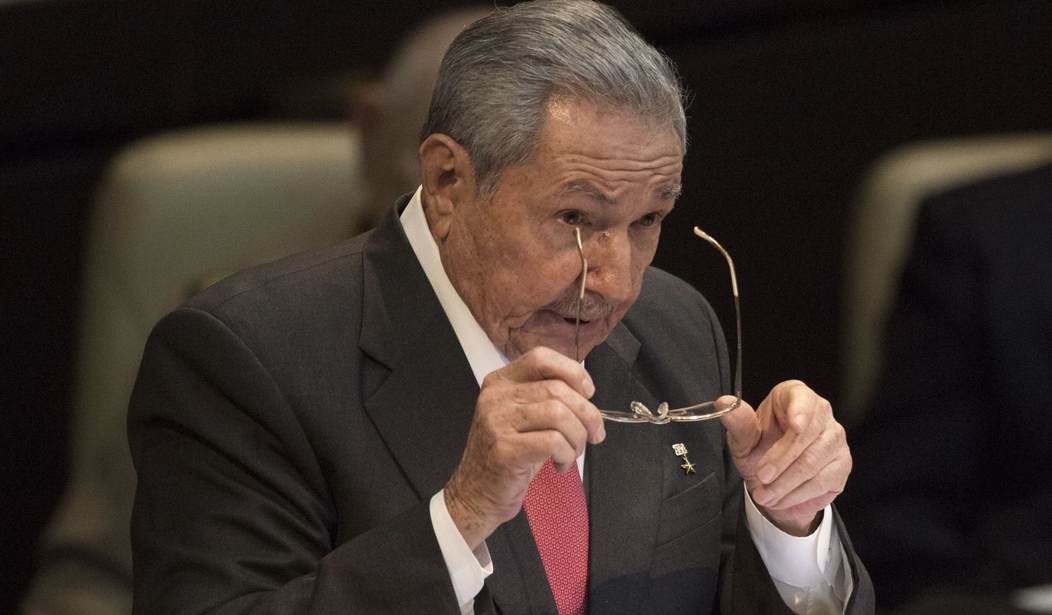Raul Castro announced on Friday that he was resigning as head of Cuba’s all-powerful Communist Party. The 89-year-old leader made the announcement at the opening of the eighth Congress of the ruling party.
“Nothing, nothing, nothing is forcing me to make this decision,” Castro said in his speech to the closed Congress. “As long as I live I will be ready with my foot in the stirrup to defend the homeland, the revolution and socialism with more force than ever.”
This is very bad news for the Cuban people. His heir apparent as Communist Party secretary is 60-year-old Miguel Díaz-Canel — the current president and a Castro loyalist.
Photographs released by the official Cuban News Agency showed Castro, dressed in an olive green uniform, entering the compound with Díaz-Canel by his side.
Castro’s retirement means that for the first time in more than six decades, Cubans won’t have a Castro formally guiding their affairs. Many had been expecting the change.
“One has to step aside for the young people,” said 64-year-old retiree Juana Busutil, for whom Castro “is going to continue being the leader.”
Therein lies Cuba’s dilemma. The country’s divisions are generational with younger Cubans chafing for economic and social change and older Cubans looking to recapture the magic of the early days of the revolution by hanging on to the legend of the Castros.
In the early 1960s, the people of Cuba were united and extremely hopeful about the future. Of course, it didn’t take long for Fidel Castro to dash those hopes. But there was a real sense of unity and brotherhood at the beginning of the revolutionary period that many older Cubans today dearly want to recapture.
Younger Cubans have no such illusions. They know how the rest of the modern world lives and they want the same things their family and friends in the United States have. And they want freedom.
But they aren’t likely to get it as long as Diaz-Canel or other Castro stooges hold power.
Although Diaz-Canel is part of a younger generation of politicians on the island, he is serving at the behest of Raul Castro and is unlikely to make sweeping changes on the island, other Cuban American critics told The Post.
“They talk a good talk but I don’t see any difference,” said Tony, 52, a first-generation Cuban American who runs La Pola, his family’s Cuban restaurant in West New York. In 2018, a Food Network critic called the restaurant’s Cuban sandwich the best in the US, sparking a feud with other Cuban communities in Florida.
“It’s just one for passing the torch to another,” said Tony about the handover of power on the island.
Reforms in recent years, including relaxing restrictions on private enterprise, have done little to satisfy the hunger for change among the young. But the revolutionary generation is reluctant to give up the ironclad control of the government over society, which is holding the country back.










Join the conversation as a VIP Member